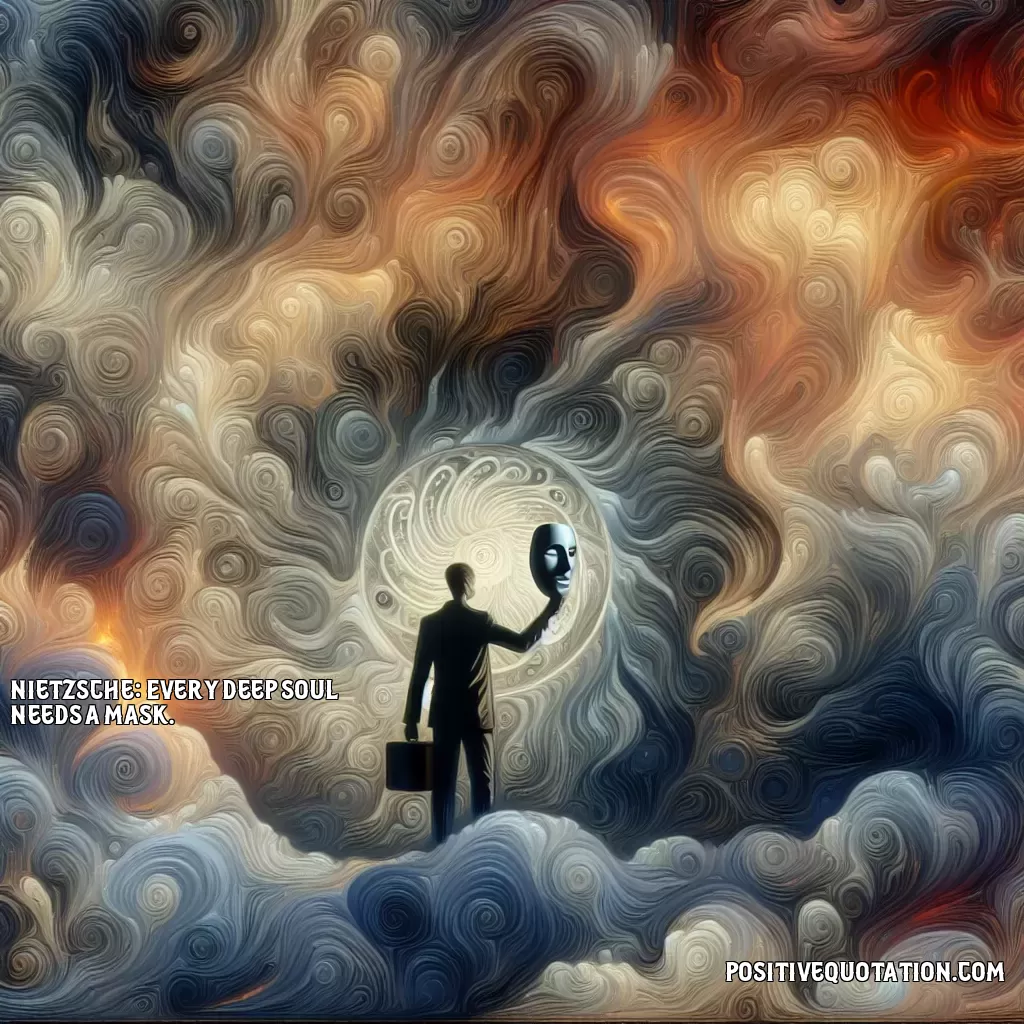
Nietzsche: Every deep soul needs a mask.
Author: Friedrich Nietzsche
👁️ 16 views
Friedrich Nietzsche, a profound philosopher known for his exploration of existential and psychological themes, offers a compelling insight with the quote, "Every deep soul needs a mask". This phrase reflects on the complex, multi-layered nature of human identity and the necessity of maintaining some degree of privacy or distance from others. At its core, the quote suggests that individuals who possess profound, intricate inner lives—those Nietzsche might describe as "deep souls"—require a metaphorical mask to navigate the world effectively. This mask serves several functions. Firstly, it acts as a protective barrier, shielding the inner self from external judgment, misunderstanding, or exploitation. Deep souls often bear rich internal landscapes that might be too vulnerable or unconventional for the scrutiny of the outside world. Furthermore, the mask allows for a degree of control over how one's identity is presented and perceived. Individuals can curate aspects of their personality, selectively sharing beliefs, emotions, and thoughts that align with societal norms or personal goals. This selectivity enables them to engage with society on their own terms while preserving the core of their individuality. Additionally, Nietzsche’s notion of the mask underscores the complexity of human authenticity. It implies that pure transparency is not only impractical but also potentially harmful, as the world may not be equipped to comprehend or appreciate the full depth of a person. Therefore, a mask becomes a tool of self-preservation and a mechanism for deeper connections where trust has been built, revealing the genuine self only to those who have earned that privilege. In summary, Nietzsche’s insight into the necessity of a mask for a deep soul emphasizes the delicate balance between authenticity and protection. It acknowledges the intricate dance between revealing and concealing that characterizes human interaction and identity.
Quote By: Friedrich Nietzsche
Friedrich Nietzsche (1844-1900) was a German philosopher, cultural critic, and poet known for his provocative ideas on morality, religion, and the nature of existence. He famously declared the "death of God" and introduced concepts such as the "Übermensch" and "eternal recurrence," challenging traditional values and pushing for a re-evaluation of societal beliefs. His influential works, including "Thus Spoke Zarathustra" and "Beyond Good and Evil," have left a lasting impact on philosophy, literature, and psychology.
Bio added on: 2025-02-15 02:56:26